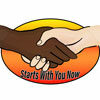5 Ways to Prepare For a Job Interview
If you’ve ever been in an interview for a job or any position for that matter, you know that it can be one of the most nerve-wracking experiences ever. The adrenaline, the doubt, the distractions, all make for a perfect cocktail of anxiety that may or may not show itself during the interview itself. One of the key reasons this happens however, is because of a lack of preparation. When you don’t know what to expect, your mind can look for false flags all over. In this article, I want to help you sit back, relax, and let the interviewer do all the hard work.
You’ve already come this far!
You proved your worth to the extent that you got your foot in the door and qualified for an interview. This means the organization has some kind of interest in you and you have value. A lot of people enter an interview with the opposite mindset which is very dangerous as an approach because it’s negative from the start. Instead, take the time to celebrate the small victory of walking in the door and showing your value with your attitude.
The interview is 100% a professional process, don’t get me wrong, but as a potential team member, the interviewers will want to see that you’ll fit with their current team. Smile and keep things light because that is the best way for them to get to know you. You also don’t have to “prepare” to be yourself. Whatever is natural is what the interviewer will be able to relate to more.
Look into the organization you’re applying to
This one obviously seems like a no-brainer but there’s a level of nuance to it that some people miss. It’s important to know the specific job you’re applying to and the goals of the business, but what if you took it a bit deeper?

Many businesses participate in philanthropic events, fundraisers, or work with certain charities that they advertise on their social media or website. This may seem like it has nothing to do with your interview, but it can. Asking questions about the kinds of charities the company works with, or what it stands for instantly shows that you’ve looked deeper into the company and you’re not an average interviewee. Not only that, but it gives you more subjects to talk to the interviewer about and relate with. Charity work is seldom put on resumes for most positions but it looks great to talk about as a surprise during the interview if they haven’t seen it on your applications.
Be Ready To Ask Questions
After almost any interview you get, the interviewer will always ask, “do you have any questions for us?”. This might feel like a polite way to wrap up the interview but in fact, it is still a question you must have an answer for. When you are asked this question, it is to show the interviewer if you were listening intently and if you have been thinking for yourself throughout the process.
Many people do not prepare a question beforehand and simply answer, “no, everything sounds good to me”. This isn’t inherently a bad thing but it leaves a lot on the table. The questions you have prepared are your chance to take control of the interview and show where your interests are. Using the example above, after you’ve looked into the company some more, surely there would be things that raise questions. This could be a question about how team relationships are solidified, what charities the company works with, the diversity of the team members, anything really. Your question will tell the interviewer a lot about what you care about so be sure to prepare 2 or 3 ahead of time.
Get some blood pumping to your brain
There are always those interview questions that everyone hates. They seem to be there as a formality more than anything and you always see them coming but rarely is there an impressive answer. Questions like, “If you had to come up with a word and define it, what would the word be?”. These questions serve to test how you think on the fly and really can say a lot about your personality.
RELATED: How To Answer Elon Musk’s Favorite Brain Teaser, And Others Like It

Before jumping into an interview, try out a few brain teasers just to get the flow going. Last thing you want is to be caught with your proverbial pants on the ground as you fumble for a “clever” answer. Warm your brain up with some brain teasers, or even look up common interview questions that test your quick thinking. As mentioned before these questions test you, but that doesn’t mean you should rush into an answer. If they don’t ask for you to answer in a certain amount of time, take the question at your own pace and really think the answer through. The pressure of the interview will be real but after you answer the question, throw it back at the interviewer. They ask the question a lot and should have an answer ready but sometimes their answers will surprise you and give you a better perspective at how to answer similar questions in the future.
It’s just a conversation
I’m not trying to downplay your ability to get the interview you’ve been working toward for who knows how long, but you can’t stress too much about this! The person on the other end of the table went through a process, just like you. They know what it’s like to be in your shoes. They want the interview to go smoothly as well, so relax a bit and let the conversation flow. You’ve got your foot in the door and, if you listened to the first point, you’re confident in your worth to the company. The next step is to finish what you started.
All the points listed above are there to help you seize control of the interview in subtle ways when normally people would begin to feel the control slipping away. Sometimes because of the perceived dynamic of an interview, people refrain from asking questions because it might seem like the interviewer didn’t do good enough of a job. They might be afraid to throw the brain-teaser questions back because it could seem rude. This is how professional interactions can be perceived but remember, the person on the other end is a person too. They want to talk to someone interesting and not just a robot who sits uncomfortably and only speaks when spoken to.
In order to prepare for this sense of control beforehand, practice the interview with a loved one. This might sound strange since they most likely will know little about the job you’re applying for, but that’s why it’s a good exercise. Have them ask basic interview questions and when you answer, sprinkle in hints or questions about the job that will help them understand what you’re applying for. This will cement your own knowledge and possibly even encourage further research before the big day.
The art of the interview isn’t easy to master

And it’s important to realize that goes for both sides. A lot of people don’t realize that the person interviewing you for your first or even second round interviews, could be new to the process. They could be struggling on the inside the same way you are just to keep your wits about you. Remembering the flow of questions to ask, directing the interview, not wanting to waste a good candidate on a bad interview, these are all things they have to keep on their mind as well. At the end of the process, we are all human and as professionals, we can do a favor to each other by remembering that.
NEXT: How To Create A Professional Development Plan



Great Job & details my friend.
But I see something is missing?
What is the purpose for that interview you have introducing now?
Your title missing the purpose for that interview.
Is it for a Recruiting interview? Meeting interview, or something else.
Also, you need to put a list of the steps for that interview below the introduction for the index.
I have worked as a Recruitment Officer for 11 Years & I can help you with that if you would like in the future.
I wish you all the best my friend,
Great Job & details my friend.
But I see something is missing?
What is the purpose for that interview you have introducing now?
Your title missing the purpose for that interview.
Is it for a Recruiting interview? Meeting interview, or something else.
Also, you need to put a list of the steps for that interview below the introduction for the index.
I have worked as a Recruitment Officer for 11 Years & I can help you with that if you would like in the future.
I wish you all the best my friend,
Thanks for the tips! I didn’t want the focus to be too much on the process and more on how the interviewee should respond. I’ll be sure to write a follow up article on the steps of the interview itself and be more clear!
Hi there Quentin,
Great job you did here on 5 ways to Prepare for an interview. Fantastic article chocked full with lots of useful information, very educative, Thanks a bunch for sharing this, I enjoyed reading it. Going for interviews can be pretty scary, the constant thoughts of been on the edge of either screwing this up OR getting all you want makes you extremely nervous, no matter how prepared you may be. The fear still comes. Thanks for making me understand it goes 2 ways. I never thought of it that way. Off to share this
They’re definitely nerve inducing but I don’t think they have to be if the right steps are taken. Thanks for the feedback!